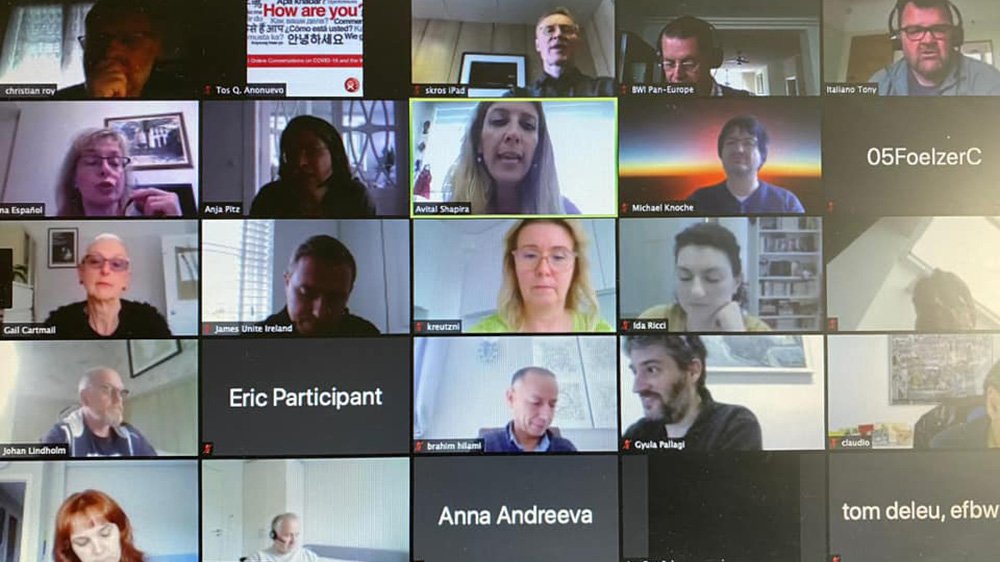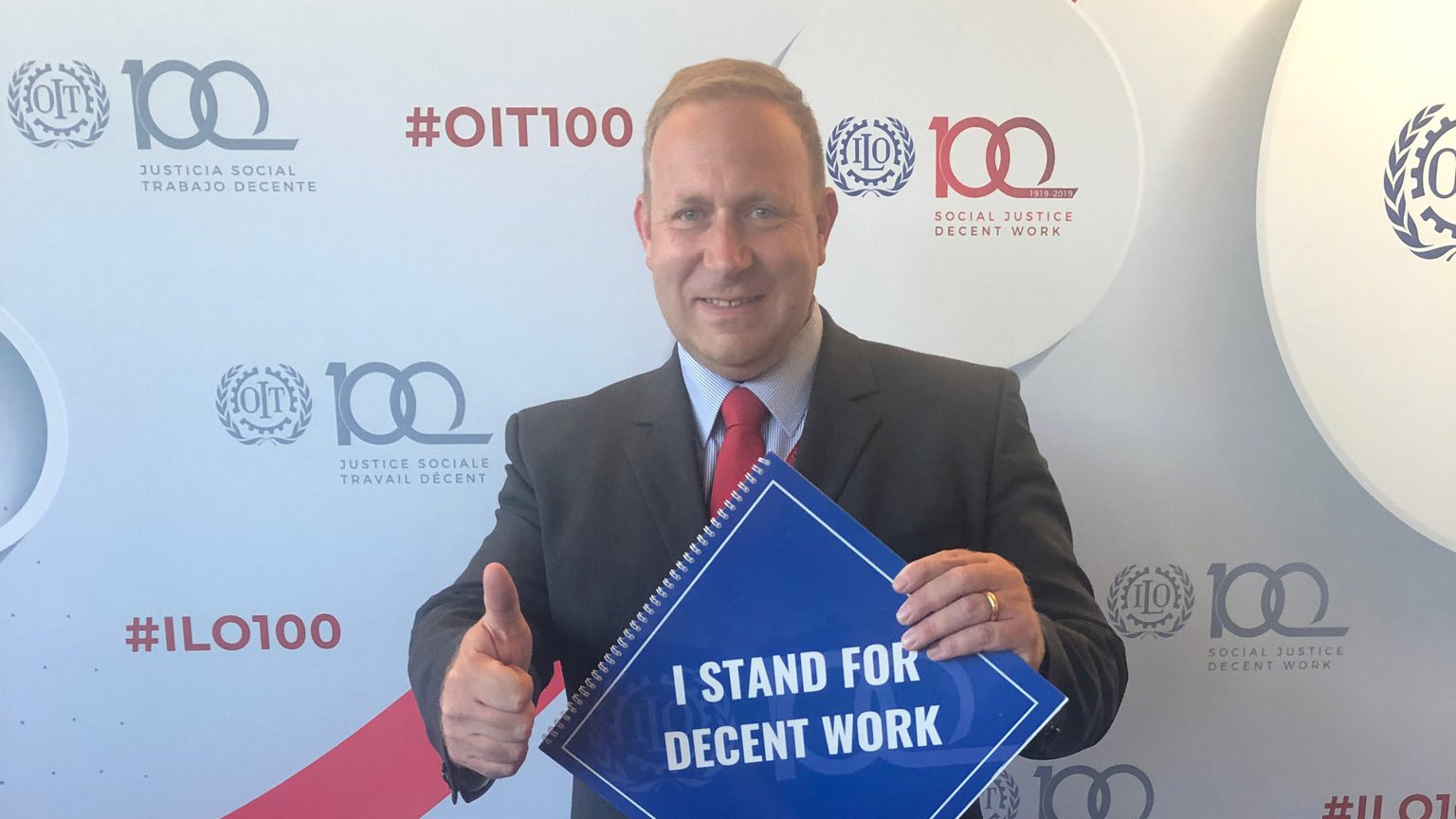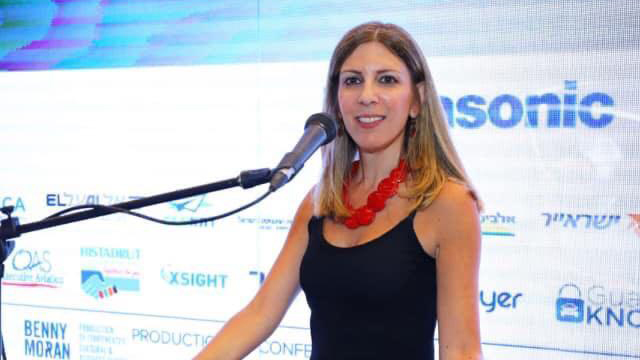
During COVID-19, how did Turkish labor unions benefit from a collective bargaining agreement signed by public sector employees in Israel? And how did solutions implemented in Austrian airlines inspire Histadrut measures taken while dealing with the crisis in El AL?
Peter Lerner, Director-General of the International Relations Division in the Histadrut, and Avital Shapira, Director of International Relations, talk about their efforts during the pandemic that closed the borders between the countries, but opened the door to international partnership.
Give an example of international solidarity that you’ve seen during the pandemic?
Lerner: "In honor of May Day, unions around the world did a virtual campaign. The message of the campaign was that the Corona crisis is a test of workers’ solidarity, and in the end it’s the workers that are at the forefront of this battle. People all over the world saw and shared it.”
So the workers of the world are reuniting?
"We’ve seen an erosion of the social contract between citizens and the government. Unions around the world are still standing together, but there are powerful forces that seek to break down our solidarity. Our partners around the world understand that they must work together to produce solutions that work for all of us," he says.

How can an Israeli labor union like the Histadrut contribute to international discourse during this unprecedented moment?
Shapira: "The Histadrut can be a source of knowledge. Other trade unions in the world are learning from us. The Building and Woodwork International union wanted to look at the collective bargaining agreement that the Histadrut won for public sector workers. They took ideas from that agreement for their work with unions in Turkey. It is of great interest to them even though they are mostly engaged in the private sector, because they also have employees who work as government employees."
What does the Histadrut gain from these relationships?
Lerner: "The Histadrut is obviously very focused on Israel. We try to bring knowledge from around the world back to the Histadrut to inform our decision-making so that we can have as wide a perspective as possible. In the El Al crisis, for example, the chairman of the Histadrut wanted to find out what they did in airlines in Austria to learn about clauses to potentially use in the collective bargaining agreement."
Why is it important to you to meet with unions from around the world?
Shapira: "I attended a Zoom conference with the Building and Wood Worker's International, a field where there are many Palestinian workers. I was happy to tell them that the Union of Building and Construction Workers, led by Yitzhak Moyal, is assisting foreign and Palestinian workers even during the time of Corona."
What kind of assistance are they providing?
"They’re providing health insurance through the kupat cholim (Israeli HMOs) and not just accident insurance. They’re also providing decent accommodation, since these workers have to stay in Israel and can’t return home. I can say with certainty that they provided personal protective gear and information about the virus. Foreign and Palestinian workers receive these protections, and the Histadrut is part of it," she explaines.
This is the first war with women at the forefront"
How is the Israeli government managing the economic crisis in relation to other governments worldwide?
Lerner: "I think the rest of the world has been very impressed by our ability to unite both employees and employers around economic plans that benefit the economy. It is a pity that the third player, which is to say the government, has not yet joined our efforts."
"What’s clear is that disadvantaged populations in the labor market – women, young people, foreign workers – bear the brunt of the crisis, along with Palestinians. We’ll continue to advance our work as the Histadrut, but that doesn’t absolve the government of their responsibility to ensure that people can survive on a basic economic level."
You mentioned the unique situation of women workers during global pandemic. Is this true around the world?
Shapira: "Women deal with more of the consequences of the crisis because of the professions they work in, as well as the [recent] rise in domestic violence. We tell the world about that Na'amat does [the Movement of Working Women & Volunteers], like setting up a shelter for battered women and a hotline for domestic violence complaints. I don't know of other unions that deal with issues like that, and that’s something our international partners have definitely noticed."

What else can be done about domestic violence?
Her answer is clear. "Convention C190 and the International Labor Organization Recommendation No. 206 deal with violence and workplace harassment, topics that are on the agenda both domestically and around the world. A year ago the convention was ratified and now individual states need to ratify it and thereby put it into practice. This is something we’re recommending that the Israeli government also sign, now that we have a government."
Lerner: "This is the first war that women are at the forefront – and everyone knows it."
In Israel, unlike Europe, there are very few labor laws protecting young people
Yael Egozi, Histadrut representative in the ITUC youth committee, participated in a Zoom conference of representatives of ITUC organizations in the Asian-Pacific region.
"With a lot of the damage done to young workers during Corona, we can see parallels in other countries around the world," she says. "Around the world, young people work in jobs with very little security. Many work in the ‘gig economy,’ and most are in unstable jobs– they have no benefits and no seniority. Some aren’t even officially recognized as employees.”
"In Israel, it is impossible to estimate how young people under the age of twenty have been financially affected by the epidemic. Most of them are not entitled to social security or unemployment benefits. In our estimation, there are about 160,000 young people who were on unpaid leave or were fired during the pandemic. In Israel, unlike Europe, there are very few laws protecting these young workers."
What lessons can we take from this period?
Shapira: "Technology allows us to find and spread knowledge. But a lot of important things in our field happen outside of the official discussions, between the meetings. Things like gathering knowledge, and dealing with the BDS [Boycott, Divestment, and Sanctions] movement. It reminds us the importance of meeting face to face."
"We’re dealing with international relations, so our ability to smile, to host visitors, to show them the achievements of the Histadrut with their own eyes, are all critical. So technology does allow us some semblance of meeting, but the real encounter is still crucial. I’m sure we will return to influence the world and bring all our guests to visit Israel."






